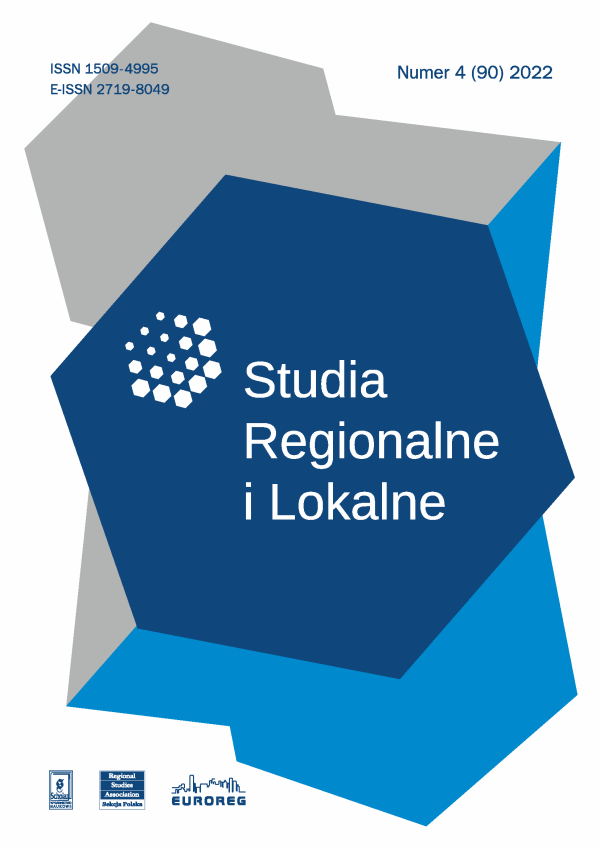Published in
4(90)/2022

- Jakub Daněk, Filip HrůzaCooperate or Not To Cooperate? Czech Municipalities’ (De)Motivation as Experience for Other Countries with Space for the Intensification or Professionalisation of IMC[more]
- Oksana Kovzele, Ilze Kacane, Maija GrizanePerceptions and Attitudes Towards Festivities and their Celebration During the COVID-19 Pandemic: A Qualitative Case Study in the Latvian Context[more]
- Taras Vasyltsiv, Olha Levytska, Olexandr RudkovskyConsequences of the War for the Labour Market of the Carpathian Region of Ukraine: Priorities of Stabilisation Policy[more]
- Mykola Nazaruk, Volodymyr KhudobaRecreational Ecosystem Services of Environmental Protected Areas of Ukraine: Prospects and Implementation Obstacles[more]
- Nataliia Khoma, Ihor VdovychynAnti-war Actionism in the Urbanized Space: A Postmodern Approach to Asserting the Value of Peace[more]
- Sylwia Dołzbłasz, Andrzej RaczykStability of cross-border cooperation in Poland in thematic and spatial dimensions[more]


